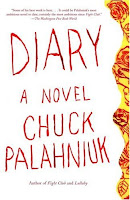Busy, busy reading as usual. I have just finished Howard’s End by E M Forster. It wasn’t quite what I expected as I was thinking it would be an Austen type love story, but I was way off the mark.
The story is mainly about the division of the British classes at the turn of the century, and it brought to mind a couple of other novels that I have read. Margaret Schlegel the main protagonist reminded me very much of Dorothea Brooke from Eliot’s Middlemarch; She is a strong minded woman in what appears to be at first an unsatisfactory marriage to the capitalist Henry Wilcox. Both Henry and his eldest son Charles are good representations of those fickle selfish wealthy types that were portrayed in The Great Gatsby.
It took a while for me to get into the story, I felt at the beginning there was a lot of unnecessary back story to build up the plot, and although the tragic Leonard Bast was a main part of the plot I found his character to be the least well developed.
As well as focusing on the division between the social classes in 1910, it also looks at the generation gap which probably became more apparent with the advent of the motor car. The younger generation would take to this over walking or taking a carriage. When one of the Wilcox’s cars runs over a cat, Margaret makes an interesting observation that in their class the women hide behind their men and the men hide behind their servants for it is easier for them to send one of the servants with some cash to pacify the owner of the cat.
I did enjoy this novel but it just didn’t quite have the charm I was expecting.
My other read was Plague by Albert Camus, which I had really been looking forward to reading as I’d heard great things about other Camus works. Whilst this was a good read, I didn’t feel that it was a great read, maybe I am missing something? I was of the understanding that the narrative was in the same vein as Kafka, but I’ve read Kafka and I didn’t think this was the case.
The novel centres on Oran , a town in Algiers
Well, I shall be off the ‘airwaves’ for the next couple of weeks as I’m heading West to spend some time with my family, and especially to meet my new grandson. I do hope to get plenty of reading done however and have selected Never Let Me Go by Kazuo Ishiguro, The Lightkeeper’s Wife by Karen Viggers (Caffeine & Chapters Book Club group read), World War-Z by Max Brooks and The Wasp Factory by Iain Banks.
So, I’ll sign off for now and happy reading all J


